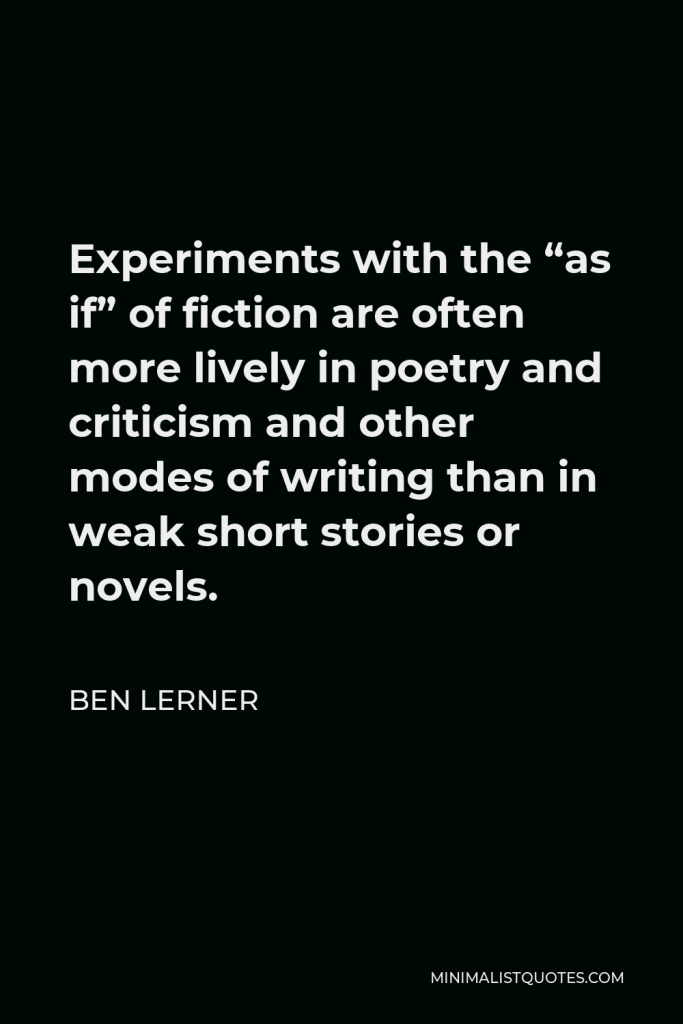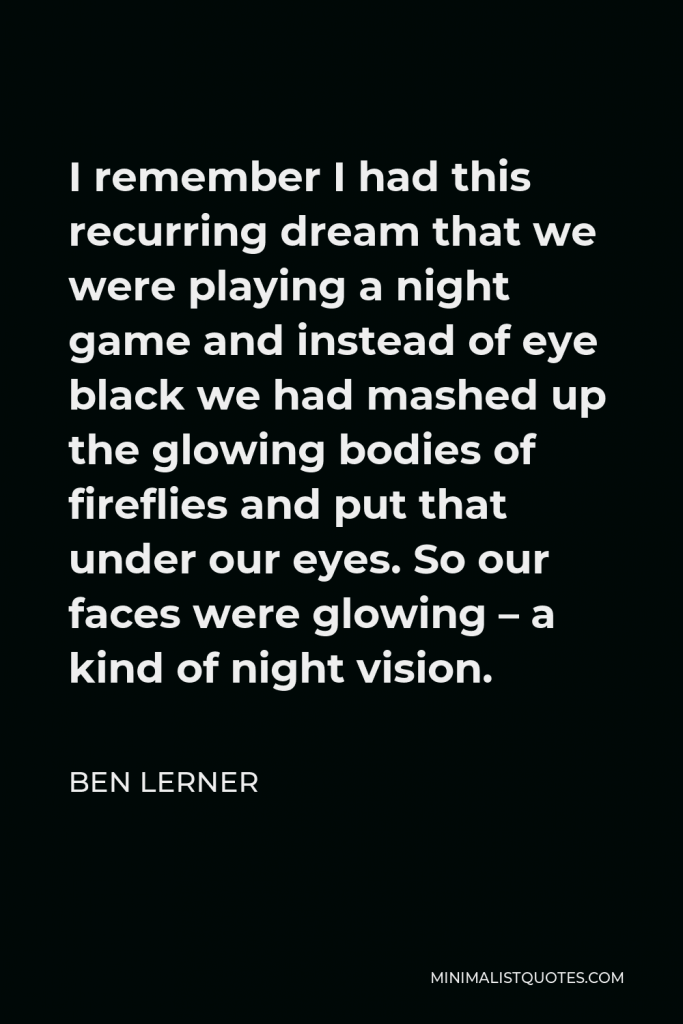Anyway I read more contemporary poetry than contemporary fiction so my mind goes first to a kind of crass “conceptualism” that repeats vanguard gestures of the past minus the politics and historical context.
BEN LERNERI’ll work my way from irony to sincerity in the sinking city, a would-be Whitman of the vulnerable grid.
More Ben Lerner Quotes
-






-







Experiments with the “as if” of fiction are often more lively in poetry and criticism and other modes of writing than in weak short stories or novels.
BEN LERNER -






The scare quotes burn off like fog.
BEN LERNER -






I’ve been building a fiction in part around the Marfa poem since my brief residency there, which has kept it from receding into the past.
BEN LERNER -






Are there are fireflies on the West Coast? I never saw any when I lived in California.
BEN LERNER -







I remember I had this recurring dream that we were playing a night game and instead of eye black we had mashed up the glowing bodies of fireflies and put that under our eyes. So our faces were glowing – a kind of night vision.
BEN LERNER -







Maggie Nelson cuts through our culture’s prefabricated structures of thought and feeling with an intelligence whose ferocity is ultimately in the service of love. No piety is safe, no orthodoxy, no easy irony. The scare quotes burn off like fog.
BEN LERNER -







I have no interest in artists who are purely affirmative, who’ve made a commercialized fetish of the culture’s stupidity.
BEN LERNER -






I guess when I’m frightened or in pain or maybe very bored I’ve tried to hold myself together by imposing a narrative order on the experience as it happens.
BEN LERNER -






I like to think – knowing that it’s an enabling fiction – of those moments as fragments from a world to come, a world where price isn’t the only measure of value.
BEN LERNER -






I was a violent, bipolar, compulsive liar. I was a real American.
BEN LERNER -







I didn’t want to write another book about fraudulence.
BEN LERNER -






Just in case God isn’t dead, our astronauts carry sidearms.
BEN LERNER -






I think the anti-intellectualism of a lot of contemporary fiction is a kind of despairing of literature’s ability to be anything more than perfectly bound blog posts or transcribed sitcoms.
BEN LERNER -






I usually see the word “metafiction” applied to works that draw attention to their own devices, their own artificiality, in order to mock novelistic convention and show the impossibility of capturing a reality external to the text or whatever.
BEN LERNER -







I’m trying to be somebody on whom the experience is lost by supplanting it with its telling. I definitely do that in medical contexts, even in trivial ones.
BEN LERNER







